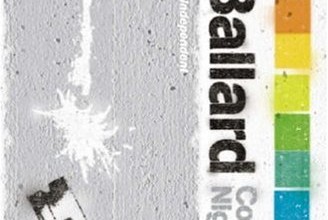Painted friendships
Yaniv Schulman, a New York-based photographer, gets a photograph published in The New York Sun. Three months later he receives a painting of it in the mail. The painter? Eight-year-old Abby Pierce from Ishpeming, Michigan.
An online relationship ensues, with Yaniv providing Abby with photographs to paint. She in turn mails the paintings to Yaniv. Ariel Schulman (Yaniv’s brother) and Henry Joost (friend) start documenting the relationship a few months later, somewhere towards the end of 2007. Catfish is born.
The documentary starts when Yaniv receives the third, or fourth (he himself is not sure), package from Abby. A telephonic conversation with Abby’s mom, Angela, quickly reveals that Abby is incredibly talented (having just recently sold two paintings for over $7,000).
The friendship with Abby paves the way for Yaniv to become friends with Angela, Vincent Pierce (her father), Alex Pierce (her brother) and Megan Faccio (her elder half-sister), or the “Facebook familyâ€, as Yaniv refers to them.
The background for the story is told quickly, through a series of email conversations. The “characters†in this documentary are revealed through their Facebook profiles. A selection of images help introduce the viewer to this Facebook family that is so very active online. They are all talented – a family of artists.
The seeds of romance between Megan and Yaniv are planted right from the start. The stage is set. The family is almost too good to be true, a modern-day fairy tale, except that it’s real.
But all may not be as it seems.
To go any further would be to spoil the story. Universal bills Catfish as a reality thriller and a “riveting story of love, deception and grace within a labyrinth of online intrigueâ€.
And while it does have its moments of suspense and thrills, that is not what the story is really about. At its heart the film is a tragedy. It documents the freedom that the internet affords us, to break free of our worldly shackles and be whatever we want to be. But at the same time, the events in the film unravel the fantasy to reveal a medium whose escapist promises are but an illusion.
The documentary has stirred quite a controversy. Is it real or fake? The skeptics question the convenience of how the events turn out in the film, unfolding to reveal a rather well-knitted story. And authenticity is very important for the effectiveness of the impact that the film is going for. The filmmakers’ insist that everything presented in the documentary is 100% true. For their part, the people in the film act perfectly natural, like regular people. Sure the directors might have ommitted a few things here and added a few details there to make the story compelling, but that does not make it any more of a lie and less of a documentary.
Documentaries generally have a hard time making it past a limited audience. There is this stereotypical format that springs to mind the moment one hears the word “documentaryâ€. Perhaps the most compelling argument in favour of Catfish is that it is nothing like a conventional documentary. The editing is slick, the music apt and the heavily zoomed-in computer screen (to the extent that the pictures are pixelated) and Google Earth give it a tech-savvy look. Yet it has a raw feel to it, which makes it refreshing.
The human future is not at stake here. There are no shocking reveals that will change the way you look at the War on Terror. Catfish documents a compelling, tragic story of a woman whose dreams may never come true.
One may think of it as a study of the human condition. It may not offer the grandiose visual oomph that its competitors will be selling, but reality does not need to.
Cast & Credits
Directed by Henry Joost & Ariel Schulman
A documentary with Nev Schulman, Ariel Schulman and Abby Pierce
Released by Rogue Pictures
Running Time: 86 minutes
Rated PG-13 for mild sexual references
Bilal Iqbal blogs about film, film theory and performance art at The Second Frame. Check it out!




